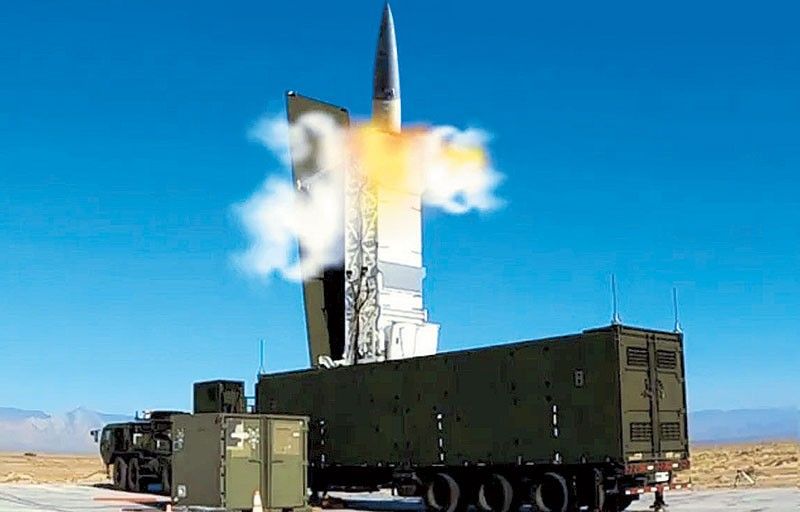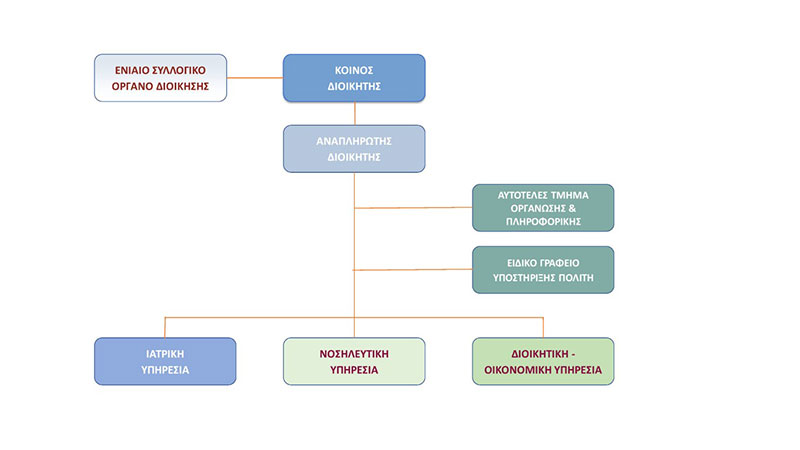US Typhon Missile System In Philippines: A Counter To Chinese Aggression?

Table of Contents
The Strategic Rationale Behind the US Typhon Missile System Deployment
The decision to deploy the US Typhon Missile System in the Philippines stems from a complex interplay of strategic considerations, primarily focused on countering China's growing influence in the region.
Countering Chinese Maritime Claims
The South China Sea has become a flashpoint of geopolitical tension, with China's expansive maritime claims overlapping those of several Southeast Asian nations. These claims, often based on a historical interpretation of the "nine-dash line," are viewed with skepticism by many countries and international bodies. The US Typhon Missile System, with its potential for long-range precision strikes, is seen as a significant deterrent against further Chinese encroachment. This advanced system enhances the Philippines' defensive capabilities and potentially alters the risk-reward calculus for any aggressive actions by China.
- Increased surveillance capabilities in the region: The system's advanced sensors can provide crucial real-time intelligence on Chinese naval and air movements.
- Rapid response capabilities to potential Chinese aggression: The quick deployment and precision strike capabilities offer a credible deterrent against any immediate threat.
- Strengthening of the US-Philippines alliance: The deployment signifies a concrete commitment from the US to the security of the Philippines, bolstering their strategic partnership.
- Projection of US power in the Indo-Pacific region: This deployment reaffirms US commitment to regional stability and sends a clear message to China and other regional actors.
Boosting Regional Security Cooperation
Beyond its direct impact on the South China Sea, the Typhon System deployment signals a commitment to collective security. This commitment can potentially foster greater collaboration among regional allies concerned about China's expanding influence. This collaborative approach is crucial in addressing a shared threat.
- Enhanced joint military exercises and intelligence sharing: The deployment facilitates closer military cooperation and improved information exchange among allies.
- Strengthening of alliances with other nations in the region: The move could encourage other nations to strengthen their alliances with the US and Philippines to counter China's influence.
- Increased regional stability through multilateral defense initiatives: This deployment acts as a catalyst for increased dialogue and cooperation among regional powers.
Assessing the Effectiveness of the US Typhon Missile System Against Chinese Aggression
While the deployment of the US Typhon Missile System is intended as a deterrent, its effectiveness needs to be carefully assessed.
Technological Capabilities and Limitations
The Typhon System's effectiveness is dependent on several factors and must be considered within the context of China's military capabilities.
- Analysis of the system's range and accuracy against specific Chinese targets: The system's capabilities need to be evaluated against specific targets and potential threats.
- Consideration of Chinese anti-missile defense systems: China possesses advanced anti-access/area denial (A2/AD) capabilities that could potentially neutralize the threat posed by the Typhon System.
- Evaluation of the system's vulnerability to cyberattacks or electronic warfare: The system's resilience against cyberattacks and electronic warfare needs thorough evaluation to assess overall effectiveness.
Deterrence versus Provocation
The deployment, while intended as a deterrent, might be perceived by China as a provocative act, potentially escalating tensions. This necessitates a careful assessment of diplomatic and strategic implications.
- Assessment of China's potential response to the missile system: Understanding China's likely reaction is paramount to mitigating potential escalations.
- Analysis of the risk of unintended escalation and miscalculation: A clear understanding of potential unintended consequences is crucial for risk management.
- Importance of diplomatic channels to manage risks and reduce tensions: Open communication and diplomatic efforts are vital to de-escalate tensions and prevent miscalculation.
Geopolitical Implications of the US Typhon Missile System in the Philippines
The deployment of the US Typhon Missile System has wide-ranging geopolitical consequences that extend beyond the immediate region.
Impact on US-China Relations
The deployment will significantly alter the dynamics of the US-China relationship, likely leading to increased tensions.
- Increased risk of military confrontation between US and China: The deployment raises the stakes and increases the likelihood of accidental or intentional conflict.
- Potential for economic repercussions related to trade and investment: The deployment could negatively impact US-China trade relations and investment flows.
- Impact on broader diplomatic efforts between the two superpowers: The deployment will strain diplomatic efforts aimed at fostering cooperation between the two countries.
Regional Power Dynamics
The deployment will inevitably reshape the regional balance of power, potentially influencing the behavior of other actors.
- Shift in alliances and partnerships in Southeast Asia: Other Southeast Asian nations may re-evaluate their alliances and partnerships based on this deployment.
- Impact on the internal politics of the Philippines: The deployment may have far-reaching domestic political consequences for the Philippines.
- Implications for regional stability and economic development: The deployment's consequences for regional economic growth and stability need careful consideration.
Conclusion
The deployment of the US Typhon Missile System in the Philippines is a multifaceted issue with profound implications for regional and global security. While it might provide a degree of deterrence against Chinese aggression and foster regional security cooperation, it simultaneously carries a significant risk of escalating tensions and triggering unintended consequences. A thorough understanding of its technical capabilities, limitations, and broader geopolitical repercussions is essential. Continued monitoring of the situation, further in-depth research, and informed public discourse on the US Typhon Missile System in the Philippines are crucial for navigating this complex landscape. Understanding the implications of the US Typhon Missile System in the Philippines is paramount for ensuring regional stability and preventing unnecessary conflict.

Featured Posts
-
 Efimeries Iatron Patras Savvatokyriako Pliris Lista
May 20, 2025
Efimeries Iatron Patras Savvatokyriako Pliris Lista
May 20, 2025 -
 Politique Camerounaise Macron Referendum Et Troisieme Mandat En 2032
May 20, 2025
Politique Camerounaise Macron Referendum Et Troisieme Mandat En 2032
May 20, 2025 -
 Suki Waterhouses Unexpected Tik Tok Trend The Twink Debate
May 20, 2025
Suki Waterhouses Unexpected Tik Tok Trend The Twink Debate
May 20, 2025 -
 Manchester Uniteds Fa Cup Victory Rashfords Two Goals Secure Win Against Aston Villa
May 20, 2025
Manchester Uniteds Fa Cup Victory Rashfords Two Goals Secure Win Against Aston Villa
May 20, 2025 -
 Wwe Rumors Ronda Rousey Logan Paul Jey Uso And Big Es Engagement
May 20, 2025
Wwe Rumors Ronda Rousey Logan Paul Jey Uso And Big Es Engagement
May 20, 2025
